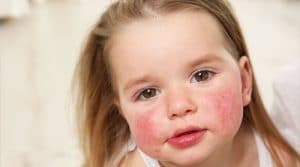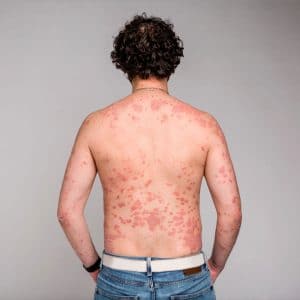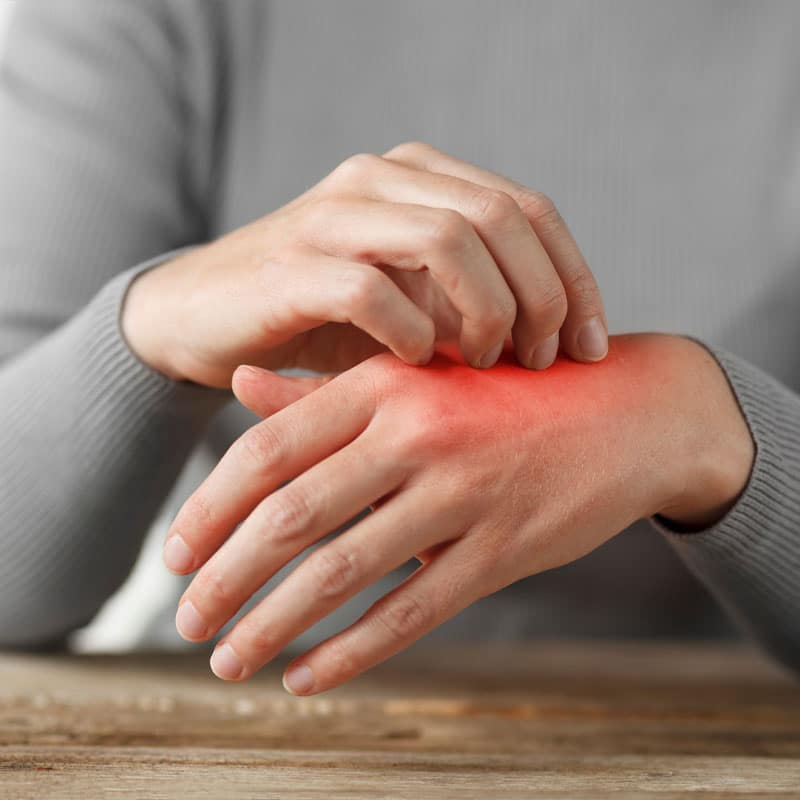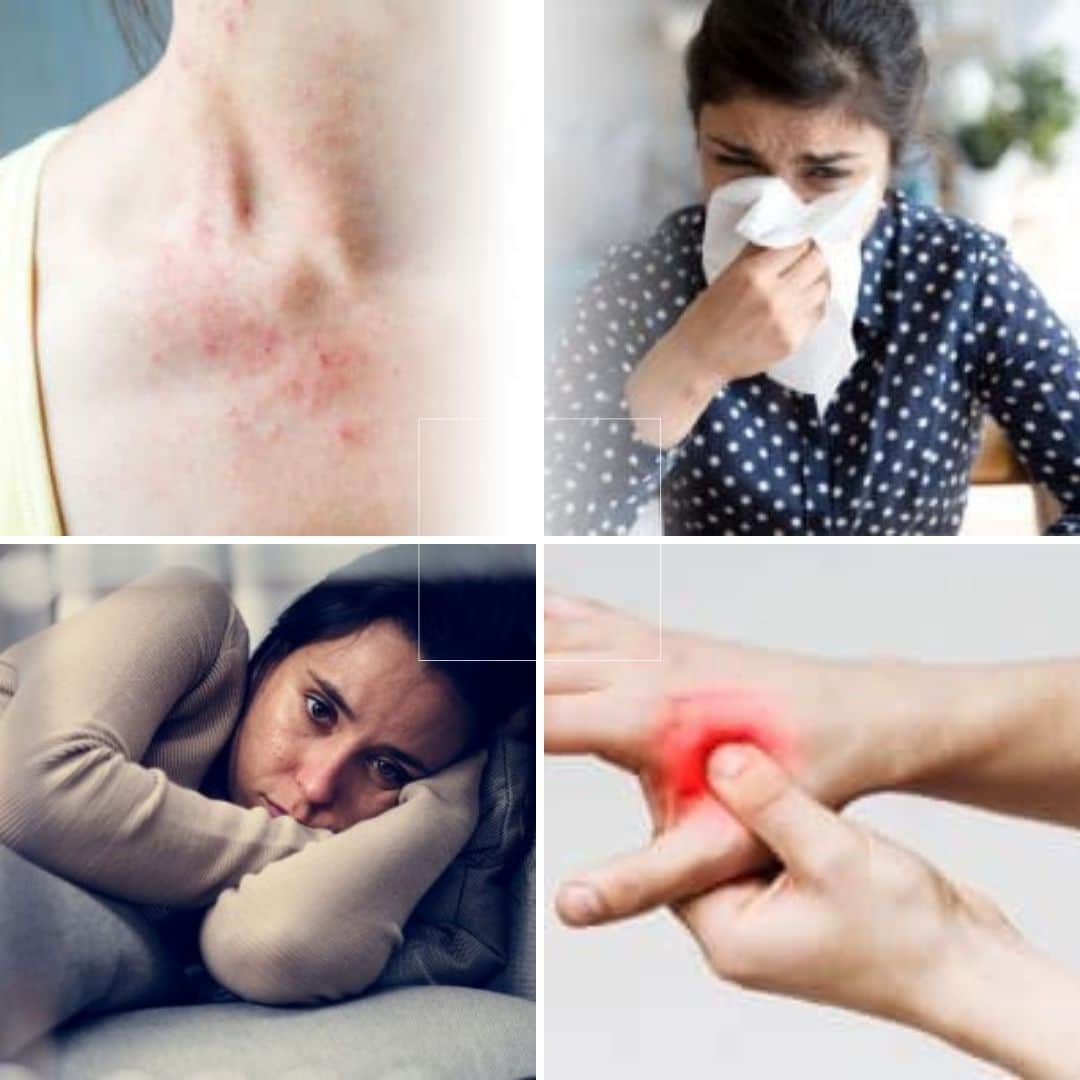Eczema, also known as atopic dermatitis, is a chronic skin condition that causes inflamed red patches that become itchy. Eczema has numerous triggers; however, the one that is often overlooked is food. Most people think their skin must come in contact with a substance to have a reaction. However, the food allergies can also cause a flareup of eczema.
Food Allergies or Food Intolerances

Food intolerances affect approximately 20 percent of the world’s population. When the body cannot tolerate a food item, a person can experience a variety of symptoms, including digestive or respiratory issues, systemic inflammation, or skin issues like eczema. Some of the most common foods that cause food intolerances include:
- Gluten – Gluten is the protein found in a variety of grains, including wheat, rye, barley, etc. Gluten is also found in artificial food colors, processed foods, medications, and even skincare products; therefore, you must be extremely careful to ensure you are not consuming gluten.
- Eggs – Most individuals have a food intolerance to egg whites rather than egg yolks. Remember eggs can be found in a number of prepackaged foods. Read your labels to determine if your food items include eggs or flavor enhancers that contain eggs.
- Dairy Products – Individuals suffering from lactose intolerance should avoid milk, ice cream, yogurt, cream, and more. In addition to this, read your labels to ensure there is no whey or other dairy derivatives in the ingredients.
- Soy – Soy can be found in numerous forms, including tofu, soy milk, soy flour, soy ice cream, and soy yogurt. Soy is considered a common allergen among those suffering from eczema.
- Sugar – Sugar is considered an inflammatory food. Consuming sugar can increase the amount of systemic inflammation, which can trigger an eczema flareup.
Other foods that should be removed and slowly reintroduced are corn, fermented foods, white sugar, and shellfish. Avoiding soy, beef, pork, and processed meats can also help you determine the triggers that are causing your eczema flareups. Finally, sometimes avoiding caffeine foods and drinks, including chocolate, coffee, and tea can be helpful.
A food intolerance is different from a food allergy because this impacts the immune system in a less obvious way. Although food intolerances are typically less serious than food allergies, they can affect your overall quality of life.
Do You Have Food Intolerances?
One of the most effective ways to determine if you have a food intolerance is to do a food intolerance test.
You can also determine if you have a food intolerance is to use an elimination diet. This type of diet uses the most common foods that cause a reaction. In order to carry out an elimination diet, you will want to keep a food diary or an app that keeps track of the foods you eat and the symptoms you experience. You will write down everything you eat and drink, any symptoms you may have from consuming a certain food.
To begin, you will want to follow an elimination diet for two weeks. During this time, you will want to remove potential problematic foods like beef, chocolate, coffee, corn, dairy products, eggs, gluten, pork, processed meats, shellfish, soy, sugar, and tea. You can enjoy fruits, healthy oils like olive oil, lean meats like poultry, legumes, non-gluten grains, nuts (unless you have a food allergy), seeds, and vegetables.
After you have removed all potentially problematic foods from your diet, it is time to begin adding in foods one by one. Choose the food that you have craved or missed the most. Eat two to three portions for three to four days. If any symptoms of a food intolerance appear, immediately stop eating the food and wait until your symptoms clear before moving on to testing out the next food.
Eczema Friendly Diet

Once you have learned the foods that trigger your eczema flareups, you can develop a dietary plan that will prevent your symptoms from returning. Remember, your diet is not the only thing that can cause an eczema flareup. Manage your stress by practicing stress relief techniques, get a good night’s sleep, and use eczema friendly skincare and haircare products to reduce your risk of eczema flares as well.
Learning how to reduce your eczema triggers is the first step toward managing your eczema and preventing flareups. It would be helpful to get a food intolerance test. Our team of integrative medicine practitioners specializing in skin disorders can help you learn how to nourish your skin from the inside out, prevent systemic inflammation, and reducing the number of eczema flareups you experience.



















